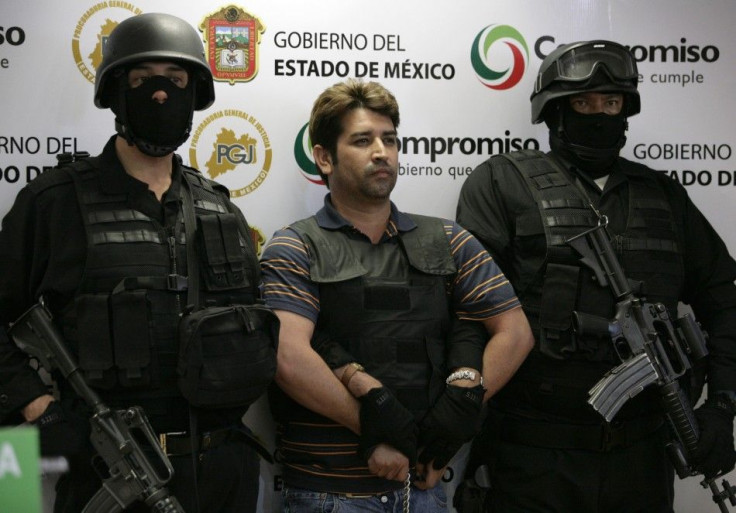35 Bodies Publicly Dumped in Veracruz, Mexico
Drug War Casualties Rise

In Mexico, two pick up trucks drove onto a rush hour highway and dumped 35 dead bodies in the street. The gruesome scene took place in Veracruz on Tuesday, in day-light and in front of hundreds of drivers and on lookers. Then, the two drivers simply left.
An examination of the bodies showed that many of the dead 23 men and 12 women were tortured before killed, and most of them died from suffocation.
The murders are thought to be the work of a drug cartel. Powerful gang Los Zetas is said to be in control of Veracruz, but a note left on the bodies threatened that There is a new owner of the turf. According to The Guardian, the note was signed GN, likely a reference to the Gente Nueva (New People), the enforcement arm of the Sinaloa cartel.
What we are seeing in Mexico is typical of a process of para-militarization in which different groups seek to wipe territories clean of their rivals, Edgardo Buscaglia, an expert in organized crime, told Mexico's MVS Radio. The groups are fighting over 22 different illegal markets, not just drugs, and that produces … an orgy of violence.
Last week, the Zetas allegedly murdered a man and a woman over disparaging tweets, then hanged their bodies on a bridge in Nuevo Laredo, which is about 14 hours away from Veracruz but not outside the Zetas' reign.
Drug-related violence in Mexico exploded in 2006 when President Felipe Calderon launched a war against organized crime. Since then, more than 41,000 people have been killed, including civilians, tourists, government officials and soldiers.
Calderon insists that his crackdown is not responsible for the violence, claiming instead that cartel expansion, as well as the United States' insatiable appetite for illegal narcotics, is to blame. Retaliation has nothing to do with it, he says.
The armed forces are not part of the problem, but part of the solution, Calderon said earlier this month. If we hadn't done anything, instead of the utopian country some think we would live in, we'd be overtaken by the cartels.
On Saturday, the body of Mexican congressman Moises Villanueva de la Cruz was found murdered, lying on a highway in the coastal state of Guerrero.
Members of his Institutional Revolutionary Party called on local authorities to begin a large-scale investigation, and demanded that police question Socorro Sofio Ramirez Hernandez, the current Rural Development Secretary and former holder of Villanueva's congressional seat.
“We publicly demand [Ramirez Hernandez]... be investigated because he is known to have pressured Villanueva at various times to subordinate him to his personal interests,” Efren Leyva, Guerrero chapter head of the party, wrote in a letter to authorities.
The state attorney general said that there was no evidence that Ramirez was involved.
While the murder could be a personal or political matter, it could also likely be tied to drug gang violence. Vicious cartels are so ingrained in many parts of Mexico, that political murders are often related to the narcotics trade.
Since 2010, a total of 19 mayors have been murdered, most recently Zucuaplan Mayor Jose Eduviges Nava Altamirano. The town of Zucuaplan is also in Guerrero. Additionally, more than 50 police officers have been killed in Mexico since October 2010.
The horror of the Tuesday body dump is not unique. Cartels use bodies to send messages to enemies and to send warnings to anyone and everyone who might possibly speak out against them.
In June, police found the remains of twenty-one men by the side of the road in Morelia. Each had a note taped to him reading Because society asked for it, this is going to happen to those who continue to rob houses, kidnappers and rapists.
© Copyright IBTimes 2025. All rights reserved.





















